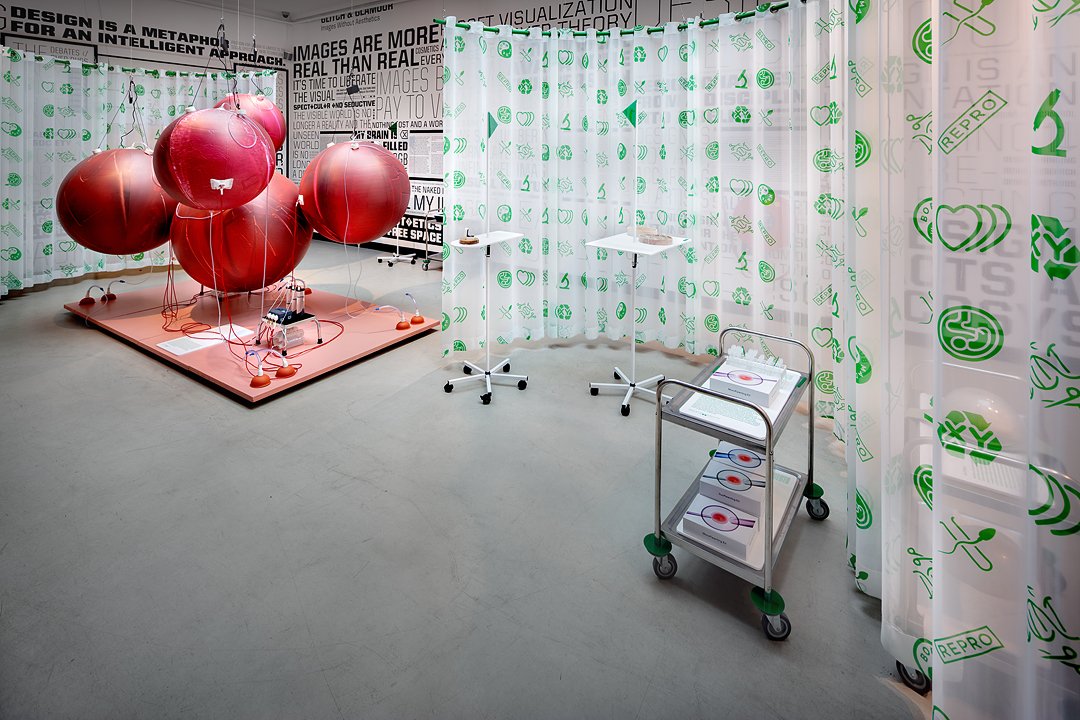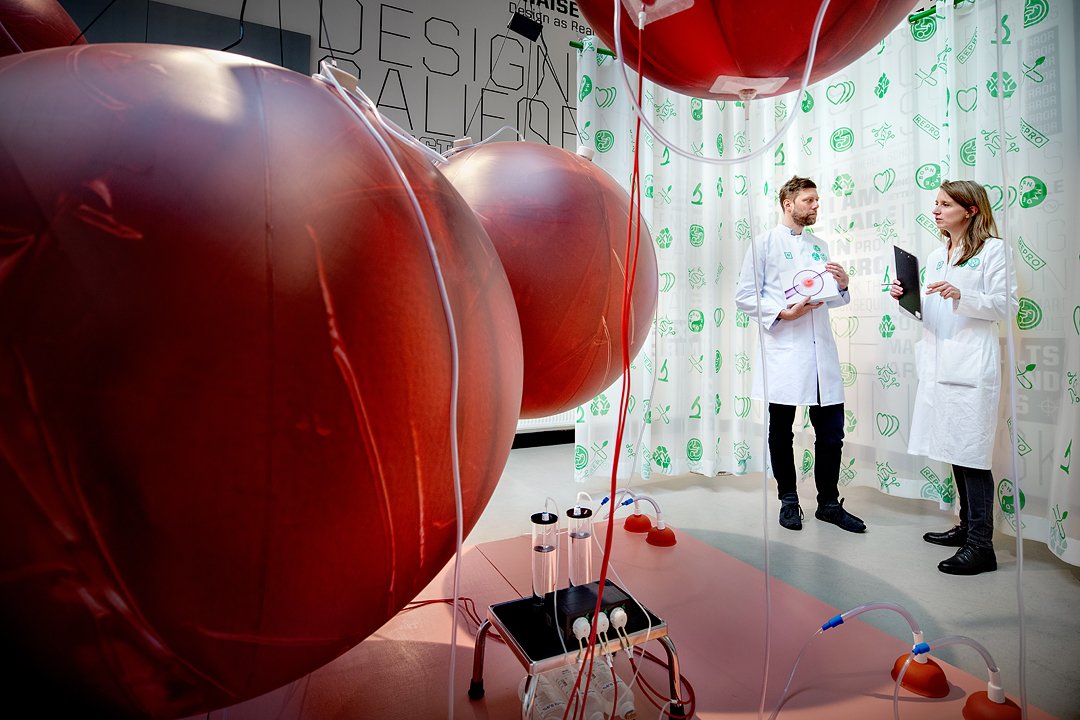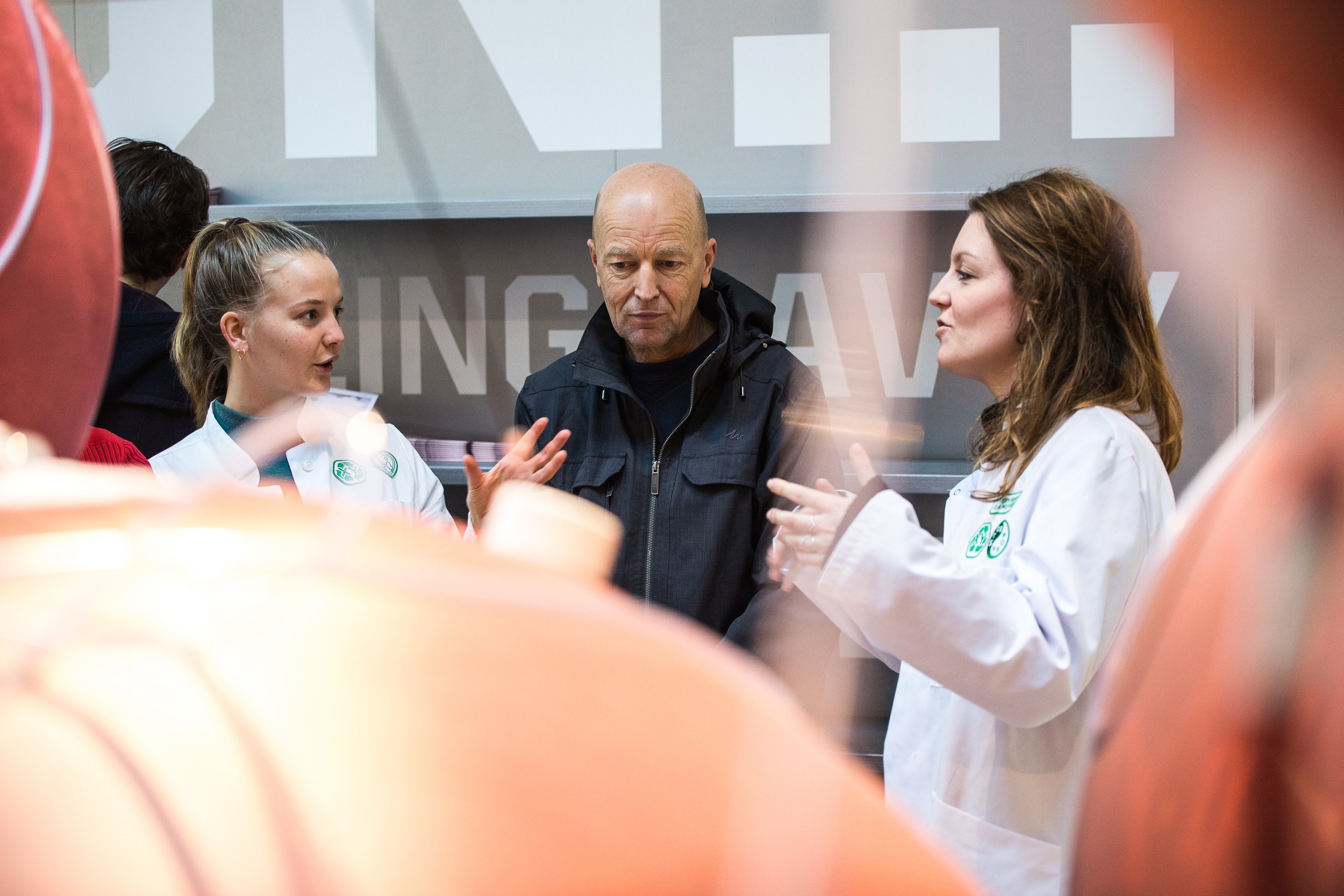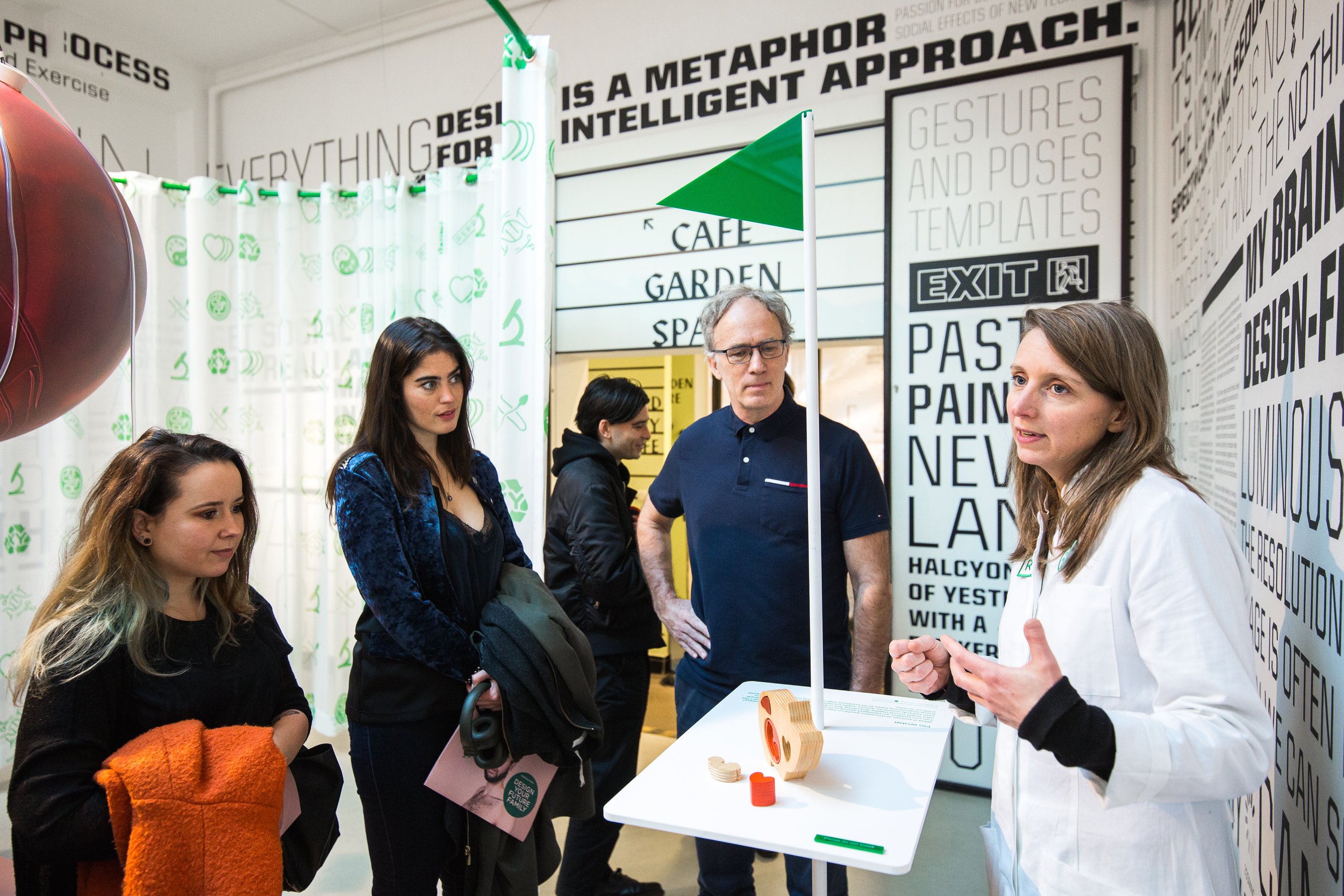
Reprodutopia
Future fertility clinic
Exhibition design for Next Nature Network
Reprodutopia
Welcome to Reproduptopia, the mobile clinic that offers self-help with designing your reproductive future.
For a long time the birds and the bees served us well to explain where our children come from. But for how long? Radical developments in reproductive technology force us to rewrite this story.
The first three-parent baby was born in 2016 with the help of the New Hope Fertility Centre in New York City. The world was in awe when imagery of a little lamb in an artificial womb circulated on the Internet the year after. On top of it all, Lulu and Nana, world’s first designer babies were born early 2018 in China. Dr He Jiankui and his team claimed they made the babies resistant to HIV by editing their DNA using CRISPR-Cas9. Their experiment caused great controversy in the medical world and beyond. But the story won’t end with Nana and Lulu.
Emerging reproductive technologies such as artificial wombs, genetic editing techniques and artificial sperm and egg cells will not only affect the ways in which we have babies. Their use will change our experience of sexuality, gender, relationships and family. We are challenged to rethink what is ‘natural’ and what it means to be human in a highly technologized environment.
New questions arise; should men be able to get pregnant and carry a baby? How would you choose your partners when you no longer need them to produce offspring? And should your kin even be human?
The Reprodutopia Clinic presents the thought-provoking visions of artists and designers; some could be perceived as dark or uncanny, while others might be seen as hopeful dreams about freedom, equality and diversity. All are created to start a much needed debate to help us make better decisions about what reproductive futures we actually want.
Creative team
Project lead: Hendrik-Jan Grieivnk (Next Nature Network)
Exhibition design: Lisa Mandemaker
Research: Joyce Nabuurs (VU - Athena Institute)







